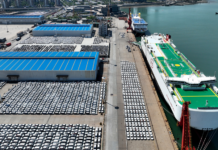PETALING JAYA, Jan 8: Business groups and an economist have urged the government not to reimplement a full-blown movement control order (MCO) as implemented in March, as a surge of Covid-19 cases continues.
Malaysian Employers Federation executive director Shamsuddin Bardan said “a delicate balance has to be worked out to maintain both lives and livelihoods”.
He acknowledged that the number of daily cases recently was alarmingly high, a cause for concern for both employers and employees, but said the economy suffered a loss of RM42 billion for every day that the MCO was in force early last year.
He told FMT that appropriate measures were needed to control the virus and reduce its spread. The MCO in March last year had been very effective in doing so, but the country and especially the private sector could not afford to go through “the crunching effects of another MCO”.
Koay Chiew Guan, president of the Small and Medium Enterprises Association (Samenta) said a milder and more targeted approach would be better instead of a full-blown MCO, as the latter was too harsh.
He told FMT that bringing back the MCO for just two weeks would still have a great impact on economic sectors, as it would set off a chain reaction in the economy.
Koay and Shamsuddin said it would be better if the general public stringently followed the government’s SOPs and protected those who are high-risk.
An economist, Carmelo Ferlito, of the Center for Market Education, said reverting to the highly-restrictive MCO would ravage jobs, with its effect on the economy disproportionately larger than its impact on the virus.
He said there was more evidence that showed no correlation between movement restrictions and how the virus spreads, adding that the MCO does not really stabilise the Covid-19 situation.
“We have seen in Europe and Asia that the virus has to run its course. Countries that were praised for good management during the first wave are now heavily affected, meaning the difference was not brought in by draconian measures but mostly by ‘luck’— the virus was just not there yet,” he told FMT.
He said the best alternative is to protect vulnerable groups while allowing others to resume their daily lives but with prudence.
Since Christmas day, Malaysia’s national record for daily Covid-19 cases has been broken four times, reaching 2,335 on Boxing Day, 2,525 on the final day of 2020, 2,593 on Jan 6 and 3,027 yesterday.
Health director-general Dr Noor Hisham Abdullah said Covid-19 hospitals and treatment centres were almost at full capacity, while he expects the number of cases to rise even higher in the next one or two weeks after the New Year.
Yeah Kim Leng, a professor of economics at Sunway University, said a national MCO should be avoided, and a vaccination programme should be rolled out as soon as possible.
An MCO might be unavoidable if the loss of lives becomes a greater concern than of preserving livelihoods, particularly if the healthcare system is overwhelmed and the vaccines are not rolled out soon enough.
“A large part of the livelihood cost will then have to be shifted to the government as part of the fiscal burden shouldered collectively by the people,” he said.
Meanwhile, Syahredzan Johan, political secretary to DAP veteran Lim Kit Siang, said bringing back the MCO must be coupled with more far-reaching financial aid measures in order to mitigate the lockdown’s economic impact on the people.
The aid dispensed previously was insufficient, forcing the people to resort to their EPF savings, he said.



















